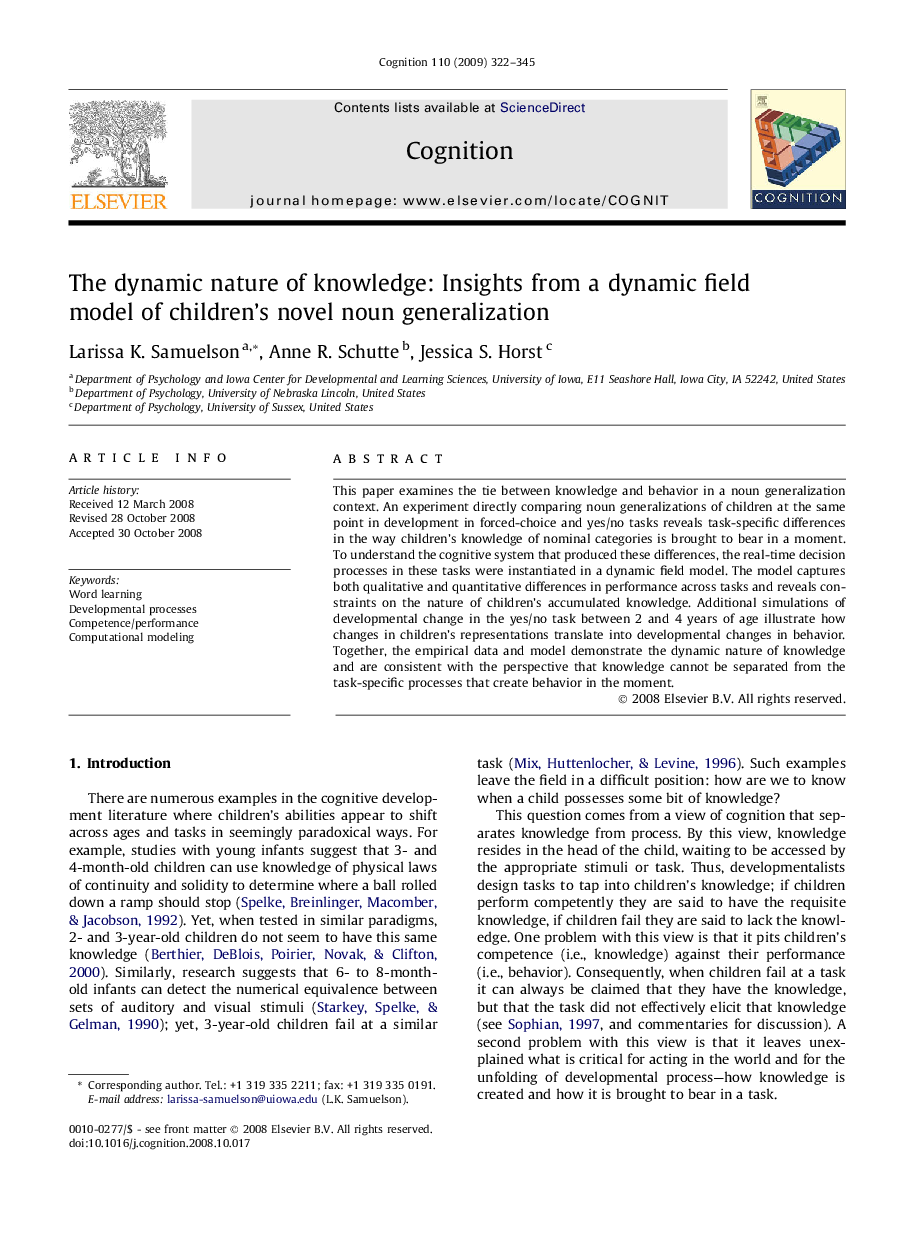| Article ID | Journal | Published Year | Pages | File Type |
|---|---|---|---|---|
| 927166 | Cognition | 2009 | 24 Pages |
This paper examines the tie between knowledge and behavior in a noun generalization context. An experiment directly comparing noun generalizations of children at the same point in development in forced-choice and yes/no tasks reveals task-specific differences in the way children’s knowledge of nominal categories is brought to bear in a moment. To understand the cognitive system that produced these differences, the real-time decision processes in these tasks were instantiated in a dynamic field model. The model captures both qualitative and quantitative differences in performance across tasks and reveals constraints on the nature of children’s accumulated knowledge. Additional simulations of developmental change in the yes/no task between 2 and 4 years of age illustrate how changes in children’s representations translate into developmental changes in behavior. Together, the empirical data and model demonstrate the dynamic nature of knowledge and are consistent with the perspective that knowledge cannot be separated from the task-specific processes that create behavior in the moment.
